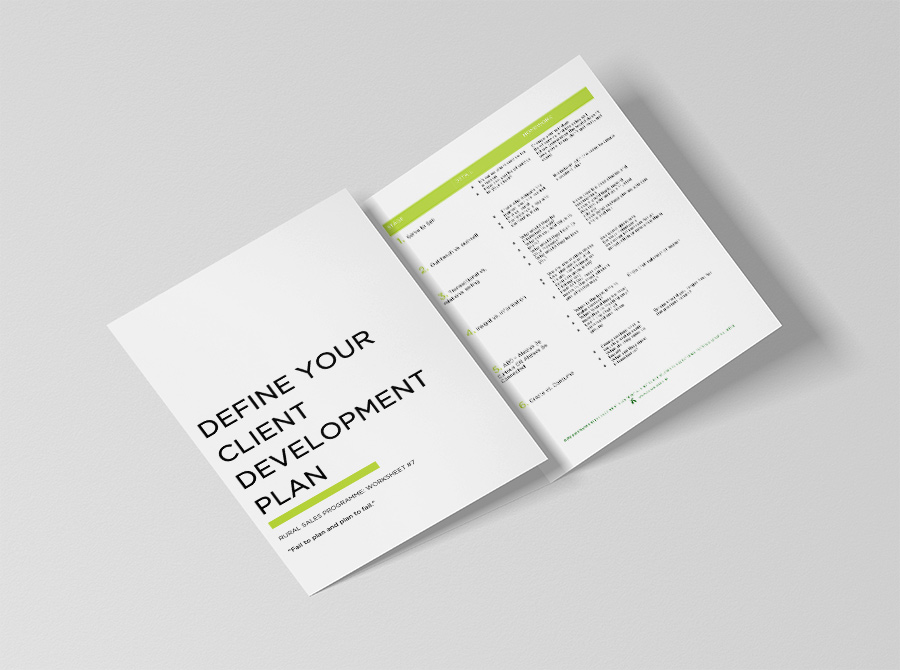Why Your Social Media Efforts Suck (And What You Can Do To Fix Them)
They call them “vanity metrics”. Likes and comments from your loyal staff but no engagement from actual customers – the ones that pay the bills. The problem with vanity metrics is you’re spending vast sums of time and money creating content that no one sees. It’s like you’re talking to yourself.
Vanity metrics will never move the needle for your business so you need to change your strategy.
People will say it’s about “building relationships with our stakeholders” and having “conversations”. Those are soft metrics and defences put up by marketing people who need to be challenged.
We have relationships and conversations in a business context because we have a purpose in mind.
We invest time and money in our social media because we want to get an outcome like being seen as a trusted advisor, getting a lead, securing an appointment, making a sale or even gaining a referral. Thing that help the business bottom line and move the needle.
Here are 7 principles to help you can immediately improve your social media strategy and content plans when promoting your own brand or business:
Principle #1: Be a creator, not a consumer
It’s the easy, quick option to share, re-post or hit the like button. But it’s also the lazy option. Perhaps you could create something instead. Perhaps you could comment to prove that you read and analysed the article rather than liked to make you look good to your peers. Better still create your own damn content. Do your research and do your homework to show people you are someone who applies themselves. People like people like that.
I wade through my LinkedIn feed and it’s chocker with people skiting and chest beating about their latest professional endeavours. Very few serve their followers with something useful or something they can learn. I’m getting pretty ruthless unfollowing people, good ones too, who don’t offer useful content because I don’t have time for their crap and selfishness.
Principle #2: Think about connections vs. compliance
We’ve all been there. We set up the company Facebook or LinkedIn page and then we have to feed the hungry beast.
But what do we feed it with?
How about some Friday funny memes? No. How about some animated gifs? No. Perhaps share some generic industry content that everyone knows you didn’t put much effort into (because it’s generic). No.
Don’t create content just because you have to. Create connect that connects with people. How can you serve your specific audience? What would they be most interested in? What are their most immediate needs? How you could help them improve or become smarter in their personal or professional lives? What problems are they struggling with that you could help them solve?
Principle #3: News people can use
If you want to be remarked about, you have to be remarkable.
Seth Godin
Here’s a great example of a guy I follow on Medium. His name is Michael Simmons. I along with thousands of others reads the weekly email he sends. I even joined his private Facebook group. His content focusses on the subject of how we learn. It’s great, well thought through, researched content. And it’s highly applicable. Mark Manson (author of “The Subtle Art of Not Giving a F**k” is another one) does the same thing. What makes these guys different is they are generous, honest, challenging and authentic to themselves. Because of this they have an innate usefulness which is why they have so many followers. Be like these guys.
Social media is like any good newsletter. They’re only good when they’re newsworthy. Make your social media newsworthy. Make your content “news people can use” as John Berger says .
Principle #4: We vs. me language
Please stop bragging about your accomplishments and be of service.
I saw a recent ad agency post doing some self-promotion about winning lots of Cannes awards. They even used the word “boasts” in their description. There’s no doubting they are clever creative people but this post wasn’t.
It would have been more powerful for someone else to recognise their efforts. Richie McCaw wouldn’t brag about his own achievements. People love the humility he and his brand stand for. Same for Brendon McCullum, Scott Dixon or Steven Adams. Take a leaf from their books. Don’t be a blow arse of humble brags.
Be grounded. Let others talk for you or endorse you. Think of others instead of yourself when posting.
Stop serving yourself (me) and start serving the audience (we) that have been kind enough to follow you.
Principle #5: Don’t pollute the channel, enhance it instead
Poor marketers often blame the medium or marketing channel they use but they rarely blame themselves.
They don’t take the time to educate and train themselves on how to use those channels correctly or they outsource it to people who haven’t invested in themselves either. Then it becomes the blind leading the blind with zero payback.
The reason your current social media plan isn’t working is because:
a) your content was crap
b) you talked about you too much (“me vs. we”)
c) your content was poorly researched
d) you haven’t focussed on a specific audience or need enough
e) you post quantity rather than quality
Blaming the channel seems so much easier than facing up to your own responsibility that you went about it in a half-arsed manner.
I don’t delete email newsletters that I find useful. Same for blogs or podcasts. You subscribe and unsubscribe rates will tell you all you need to. The other proof is monetary. I will happily pay subscriptions where information and insights are useful, valuable and applicable to me in my personal and professional life. If you can monetise your content I salute you.
Principle #6: Out-Teach vs. out-sell
Those who educate the market own the market.
Anon
Most of you will have a ton of expertise and intelligence residing within the organisations you work for. But you can’t sell a secret. Why don’t you extract it, make something of it and use it to serve your audience?
Curating and collecting is hard work. I know it’s hard because I do it too know.
I spend about 10 hours each week (usually late at night when the kids are finally down) reading and researching to add to the other 39 blogs I’ve written (I also have a ton of drafts I’m sitting on and editing because they’re currently super crap).
The best thing to do is start writing. Get your first ugly draft down then chisel away at it until you think it’s done. The more you write, the better you’ll get.
Reason #7: Content is king but consistency is key
Without commitment, you’ll never start but more importantly, without consistency, you’ll never finish.”
Denzel Washington
Like bad websites, it’s better not to have a social media account than have one if you’re not committed.
If you’re going to commit to to social media and content, commit to it fully. Don’t be a one hit wonder. It sends the wrong message and people you’re trying to persuade who will see you as someone who doesn’t apply themselves and gives up. Hardly the reliable credentials you need to promote.
Simon Sinek talks about how consistency beats intensity. He’s right. He uses the consistent examples of going to the gym and eating the right foods every day or reading a book every night will get you a result due to the compound effect of consistency. Going to the dentist twice a year is intensity but brushing your teeth for two minutes morning and night is consistency which means you’ll end up with healthier teeth.
I’ve seen many on LinkedIn start to write blogs but then never continue. They fizzle out and die. Don’t be one of these people. Be one of those rare people who consistently posts good content.
Make it a habit and a discipline (big words those ones!). Easy to say, very hard to do.
+++
Don’t fall for the social media tick box solutions and automated content plans being pitched at you by also rans or pretender who are selling you quantity rather than quality. Demand better because you are better.
Think bigger and wider. I talk about influence as the #1 marketing discipline we all need to master first. Social media and content play a big part in influence but get it wrong and you’ll have no influence or even the reverse.
I hope some of these ideas are useful for those of you who are considering how to start or improve your social media and content strategies. If you’re still struggling talk to us so we can help you improve your social media results.
Good luck.
+++
If you liked reading this article you might like these ones too:
Why Influence Is The Greatest Marketing Tool You Never Use





